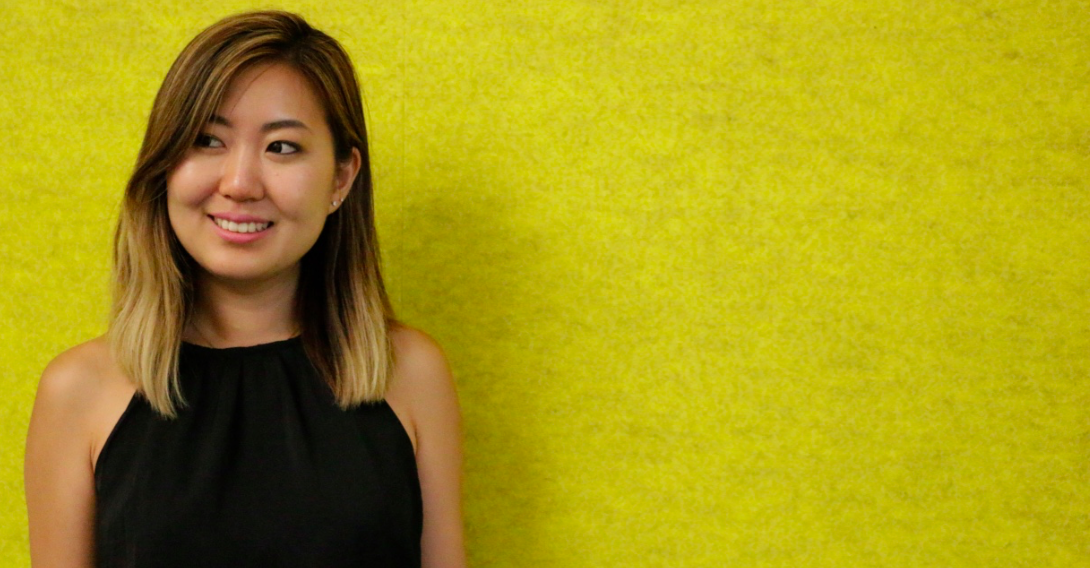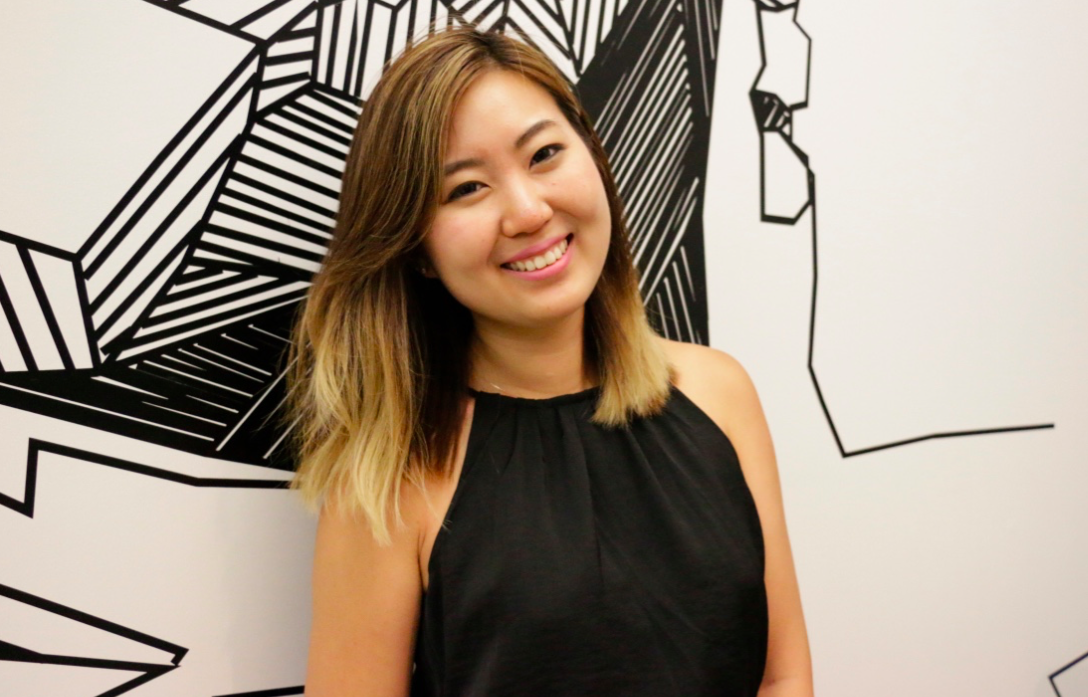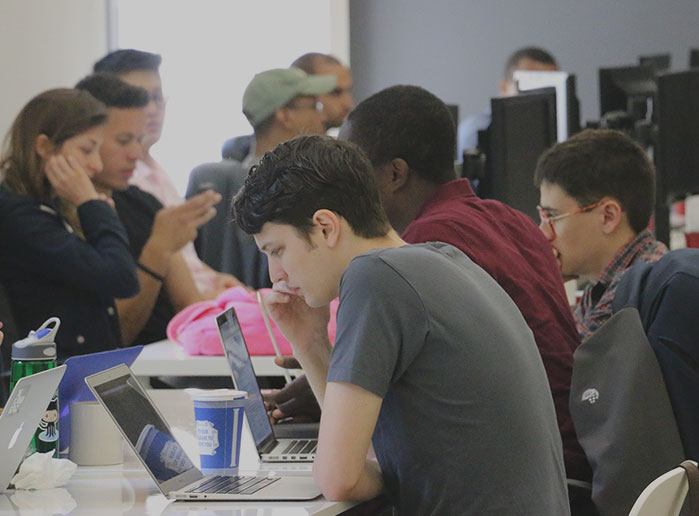This post originally appeared on August 5, 2015.
Stephanie Oh has an eclectic array of talents to say the least.
Once a writing instructor and tutor, she also worked in the talent management industry with artists like Def Leppard and CeeLo Green. Stephanie enjoys writing music and recording songs from home and is also working on a start-up idea called Kyndryd, a new platform centered around public chat groups. Currently a Product Manager for Constant Contact, Stephanie opens up on what it’s like to be a woman in tech and startups, and how Flatiron got her to where she is today.
What attracted you to web development?
I realized that programming had become such an in-demand skill, and up until [a certain] point, I never considered it because my mind had been so closed to it. I was an executive assistant in music, so I thought the best I could go into was marketing or PR, but I didn’t know if I was passionate about those things. After seeing how creative so many websites and apps are, I thought, “Who are the people who make these things?” It seemed inherently creative, and that’s what attracted me to it in the first place. I felt like even as an entry web developer, it would be creative because I’d be making things. When that clicked for me I thought, “Why didn’t I move into this sooner?”
What was your favorite aspect of learning at Flatiron?
Something that impressed me about Flatiron School was their emphasis on selecting what I felt were very social, awesome people — almost as a conscious effort to break and change the stereotype about developers being dry, quiet people who don’t like to socialize. I felt like that was not true at all with my cohort. Find empathetic, good people first — then make good developers out of them. When I came here, it was a roomful of people like that.
What kind of work do you do now?
Now I am a product manager for a fairly big company called Constant Contact. It’s awesome — I get to interact everyday with developers and I am looked upon to be very technical in my understanding of their work and how to break it down for them. It’s a super technical position that doesn’t require being a developer yourself. Although I’m not writing code anymore, this opportunity wouldn’t have had its doors open to me had I not first done web development and learned the basics as The Flatiron School.
You used to work in the music industry and as a writing instructor. How has your past work informed what you do now?
I have to be good at communicating, and I feel like 50% of what I do is translating things. Developers speak in one way and the business side has their own speak. I’m kind of in the middle, playing translator and making sure that everyone is super clear on expectations and requirements. I’m also kind of teaching people what we’re going to do next, which is where I think my teaching experience comes in. It helped me be a better communicator and less afraid to present in front of a room.
“If you’re a woman, be particularly vigilant about demanding fair pay and equity and benefits for yourself.”
What is your favorite thing about programming?
I think this sounds really nebulous, but I guess just how it has the power to turn such complicated things into such a magical, seemingly simple, delightful experience to the end user. [Code is] presented behind this beautiful veil of front-end where every color and button is pretty, and you have no idea how complex it is under everything.
What was the biggest challenge you faced when you first started learning to code?
I feel like I’ve generally been a strong student when it comes to learning foreign languages, so it wasn’t the syntax that was intimidating. It was how mathematical writing methods and functions can really be. The best and most complicated functions require a high level of math, and that was a huge challenge for me.
What advice would you give to women interested in learning to code?
My first piece of advice is to learn how to code a little bit, at least the basics. You don’t have to be at the level where you’re banging out web apps left and right, but verse yourself in high level architecture of how the web works, because that’s going to be so valuable in no matter what role you have. If you come armed with that knowledge, people will respect you more and you’ll be able to join in on the fun right away.
Beyond that, it’s so trite to say, but you have to exude as much confidence as you can. It’s really still very much a boys club in the tech space, so go in there with confidence and find other women who can support you in your journey. Meet new people at tech meetups, and know you’re not in it alone. It can be easy to succumb to imposter syndrome and think, “I’m not a code genius, this isn’t the place for me!” But it’s not true.
What about making headway in startups?
If you’re a woman, be particularly vigilant about demanding fair pay and equity and benefits for yourself. It’s easy to think, “It’s a startup, so maybe I shouldn’t ask,” and I think a lot of women get shy about that and they take the short end of the stick. Be aggressive about that, don’t be shy. For women who are interested in getting into management, come in through roles like customer support or junior coding jobs and work your way up — particularly at startups. They tend to be more nebulous and flexible, and they don’t know what roles they’re going to fill yet. Get your foot in the door and speak up!
Interested in starting your own career in tech? Begin your coding education with Flatiron School on Learn.
Written byFLATIRON SCHOOL
Make yourself useful.


